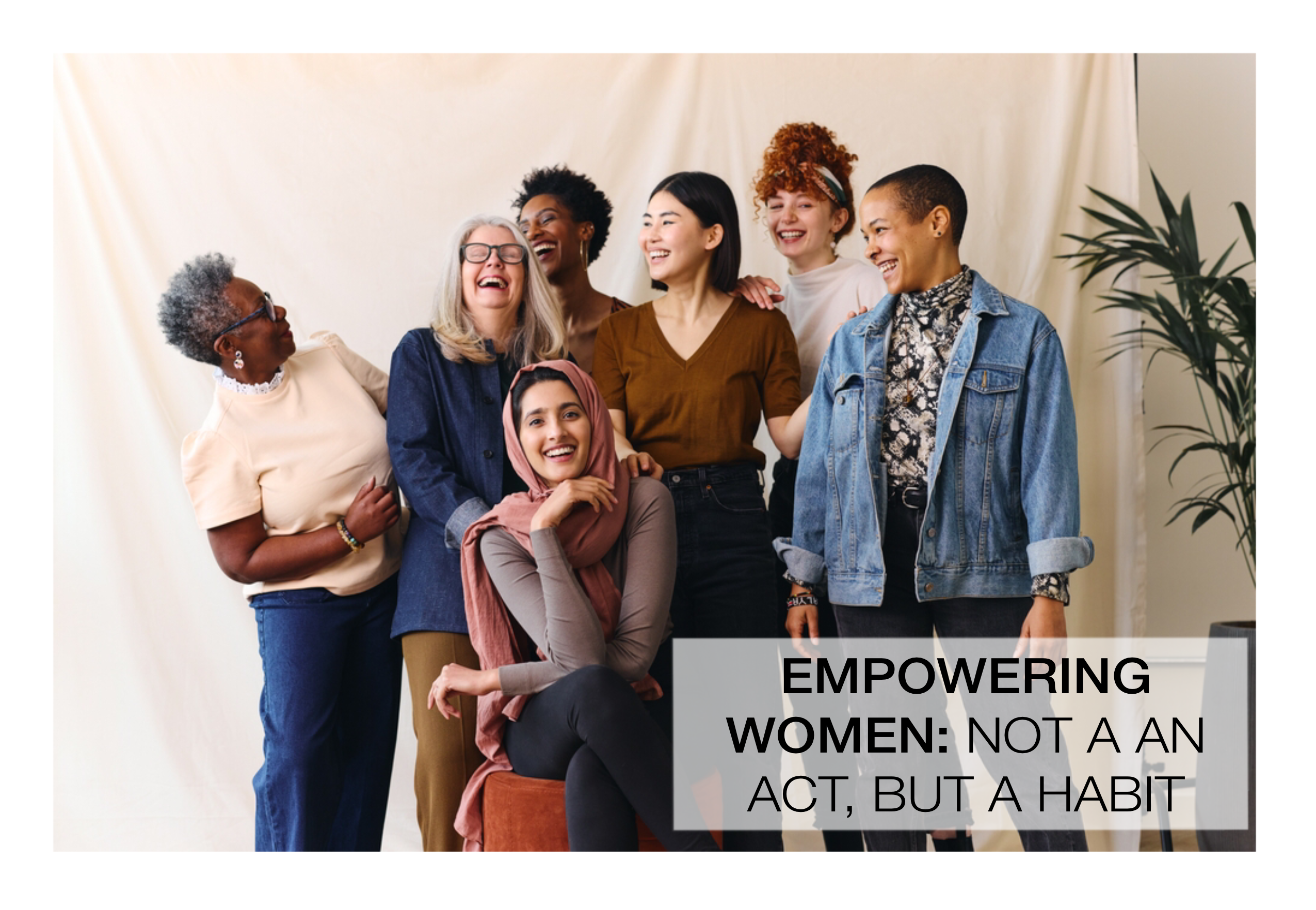We hear all the time about the movement to empower women – in the workplace, in sports and in society in general.
One could argue women’s lasting empowerment begins at home. Yet, that’s where the opportunity is often lost.
This is the first of a two-part series on the importance of empowering women by strengthening their professional and financial lives.
Empowerment is more than just a catchy headline or a hashtag. It’s a mission that should begin at home with parents teaching their daughters about finances, husbands or partners involving their significant other in shared finances, or women generally gaining agency in their affairs.
What hold’s women back? It’s often a lack of understanding, time or self-confidence. In a recent paper by UBS, 68% of women have started talking about their finances, however less than 30% are following through with financial participation.
As the European father of two daughters coming from a family of Middle Eastern descent, I have learnt that empowerment is defined differently depending on a person’s regional and cultural background. Even in the United States, where gender inclusion is a hard-fought mission in the corporate ranks and C-suite, its intent can be shrouded in mixed messages.
As we fight alongside women for their rights in the office, the field of play, or daily life, are we in actuality diminishing their rights? By advocating so strongly for “inclusiveness,” are some being undermined, as if they “need” our help to thrive?
Maybe strength comes through financial empowerment. Society historically has controlled its people through finances; banks decide who gets money, managers control what someone gets paid. In some ways, it’s the same in the home, even if unintentionally. Who pays the bills, who handles online banking, who has the relationships with the attorney, financial advisor or accountant?
Even though we now have more college-educated women than ever, many who are married or in relationships remain unaware of their finances. In many cases, it’s not until the death of their significant other that they are forced to handle their affairs.
If you think this isn’t you, ask yourself: Do you know your credit score? When was the last time you checked your investments or checking account? When was the last time you sat down and reviewed your personal estate plans?
If you wait until death forces your hand to start asking some hard questions, you are in a weakened position. It’s not just about knowing how to pay the mortgage, or knowing the banking log-ins or passwords, or even having the banking app on your smartphone.
It’s time to break that cycle by changing the dynamic. Married women or those with significant others and commingled finances should step up and act. First download and review your financial statements, then call for and attend a meeting with your financial advisor. If you don’t understand some of the details, make notes and ask.
Most importantly, speak up. The time for being a passive participant listening to “the testosterone in the room” is over. It’s time to act.
Aristotle once said, “Excellence is not an act, but a habit.” The same could be said of owning your financial independence. Empowerment must be habitual to be lasting.
Next up: Actionable steps for personal empowerment.

Leave A Comment